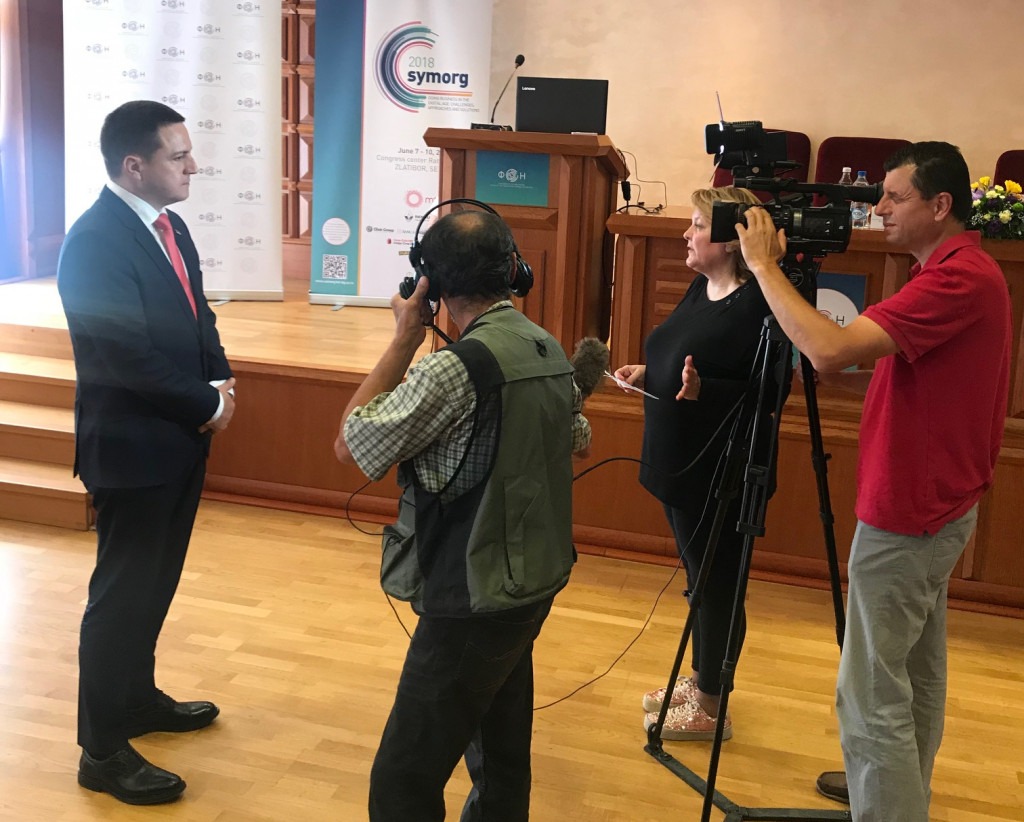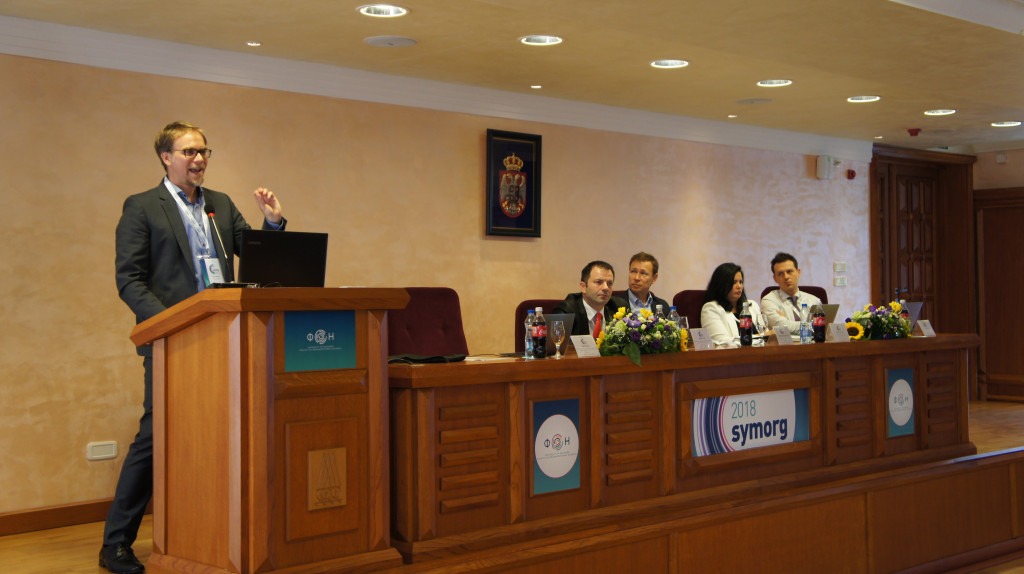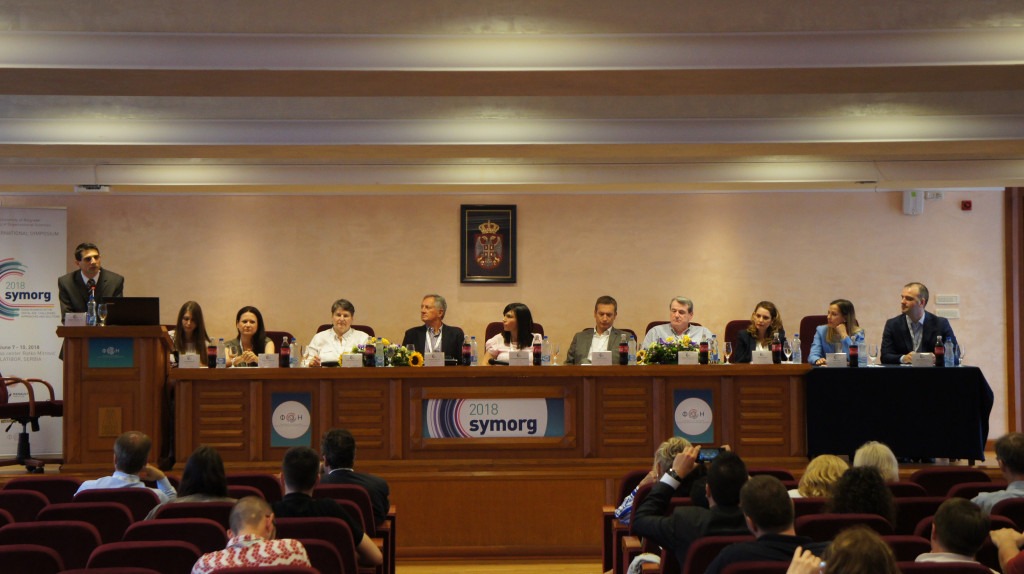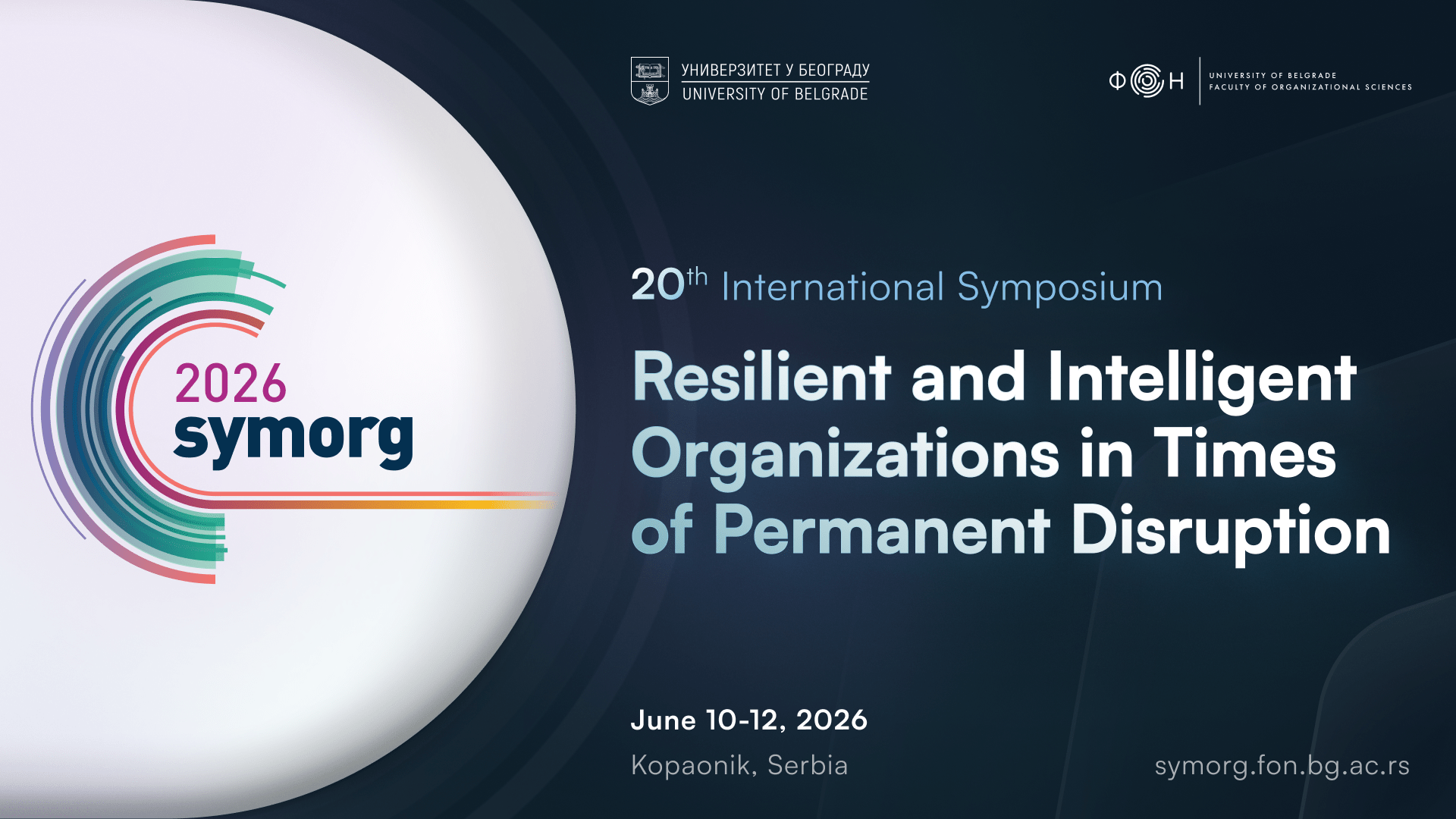The second day of 16th International Symposium Symorg 2018 organized by the Faculty of Organizational Sciences hosted three roundtables focusing on digitalization.
The moderator of the first roundtable entitled Current state and future prospects of Serbian digitalization was Branislav Vujović, New Frontier Group, Austria, while the panelists were Branko Ružić, the Serbian Minister of State Administration and Local Government, Milan Simic, Executive Director of IT and ICT Services at Telekom Srbija; Mihailo Jovanovic, PhD, Assistant Professor and Director of IT and e-Government Office and Nenad Paunovic, Director of IT and Entrepreneurship Team from the Cabinet of the Prime Minister.
Important issues regarding digital economy and the changes that it brings to clients, companies, administrations, and the society as a whole were discussed during this roundtable. The focus was on the values brought about by the digital economy, and the ways of recognizing and defining them. The panelists tried to provide answers to the questions concerning Serbian chances and directions regarding digital transformation, the advantages and disadvantages of a faster digitization progress, and other issues.
“Digitization is a priority of this Government. New registers are needed in order to introduce digitization, so that citizens and users will be at the center of attention, and the State is providing citizen services “- said Minister Ruzic.

Another roundtable entitled When E-procurement did (not) mean better procurement was moderated by Predrag Jovanovic, the Director of the Public Procurement Office in the Government of the Republic of Serbia, while the panelists were Sašo Matas, the head of Division for the development of public procurement systems, Ministry of Administration, Government of the Republic of Slovenia; Miloš Jović, the Head of division for development of public procurement systems, Public procurement office, Serbia, Dean Firkelj, a consultant from Croatia, and Sandra Damijan, PhD, Research Center of the Faculty of Economics in Ljubljana, Slovenia.

The third roundtable gathered former students of the Faculty of Organizational Sciences who now occupy leading positions in some of the major companies in Serbia. Mladen Čudanov, PhD, Associate Professor opened the topic of Redefining knowledge and skills in the digital environment,and the panelists were some distinguished representatives of the academic community: Ivanka Popović, PhD, Professor, Vice-Dean of the University of Belgrade, Miladin Kostić, PhD, Professor, the Dean of University of Novi Pazar, William Proud, PhD, QUT Business School, Brisbane, Australia, Mihailo Vesović, the councelor of the president of the Chamber of Commerce, and Dušan Vujović, assistant, University Union. The same role of panelists was also occupied by the representatives of the corporate sector: Maša Lalić, Head of Human Resources, Generali Osiguranje, Gorana Golubović Vuksanović, Head of Corporate Communications, MK Group, Suzana Marović, Head of Development Sector, Telekom Srbija, Jovana Dačković, HR Business Partner and Talent Development Expert, Coca Cola Hellenic, and Dragana Stojanović, People Processes Manager, Air Serbia.

One of the questions raised was the one regarding formal and informal education. The representatives of the academic community pointed that many University programs wish to maintain their exclusivity and that we have become intolerant to multidisciplinary programs. This is why it is necessary to redefine them. The representatives of companies, on the other hand, spoke about knowledge and skills that are expected, but hardly ever present with graduates with a degree in IT and management. They all agreed that the practical knowledge gained throughout studies is very important for their future careers.
„We do not have enough time to sleep and we are still too traditional. Rapid progress asks for more investment by the state“ – said Ivanka Popović, PhD, the Vice-Dean of the University of Belgrade.



